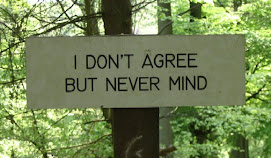Thanks for your comments :)
AlistairL has added:
The slight trickiness with your argument is that it undermines any kind of claims about training or coaching, and any kind of book.
Experience is flawed because it is inherantly limited, and any method of imparting experience is also flawed due to limitations in communication.
Yes.
& No.
'Training' (of the road safety variety) is all very laudable - but there's very little proof that it ever does any real long-term good (in reducing crashes and casualty statistics).
So I was quite interested to read this report:
Does Anticipation Training Affect Drivers’ Risk Taking?
Frank P. McKenna University of Reading
Mark S. Horswill University of Queensland
Jane L. Alexander University of Reading
which includes:
Gregersen and Nyberg (2003) considered the conditions under which training might increase or decrease risk taking.
They were examining the effects of two early training programs in Norway, of which one resulted in an increase in accident involvement (skid training) and the other resulted in a decrease in accident involvement (training for driving in the dark).
They speculated that the differences occurred as a function of the method of training.
The skid training involved drivers mastering simple exercises and potentially creating unrealistically positive perceptions of driving skill, which could lead to increased risk taking. In contrast, the training for driving in the dark was designed to demonstrate the dangers and problems of nighttime driving and therefore might lead to a decrease in risk taking.
Now, take that last section: designed to demonstrate the dangers and problems
What's the main benefit of track days for 'training'? We're often told that track days are great because they allow improvement in riding without the risks of road riding.
Now, I'm not suggesting that all training should take place in high-risk environments!
But training must focus on realistic risk identification and management. And it is possible - and easy - to produce that in 'safe' environments - but it requires careful thought, planning, and presentation (and attitude) on the part of the trainer.
But that quoted paragraph also raise my concerns, again, over the 'progress imperative' within much 'advanced' training.
.
Thursday, 22 October 2009
Subscribe to:
Post Comments (Atom)





1 comment:
I think there are one or two other pieces of research that seem to confirm the idea that if you scare the living daylights out of people then they are less likely to have accidents.
Whether or not you could continue the research to say that this then predisposed the individuals to agrophobia and stress related illness is another point :)
As you know the issue is where "advanced" training comes from - the term was coined by Police training and was an attempt by them to reduce accident figures in pursuits. This means that they historically train individuals to push beyond their comfort zone in terms of proximity to other vehicles and speeds, qualities that are needed for pursuit and aprehending of criminals. And the techniques for this came from the racing drivers of the time.
So back in the civvie world, where we develop our own differing curriculum - is it not a fundamentally flawed concept to draw principles from roadcraft and twist of the wrist? Unfortunately the alternative is heavily padded public transport - motorcycles are "inherantly dangerous" and would be banned by the other end of "road safety"!
Post a Comment